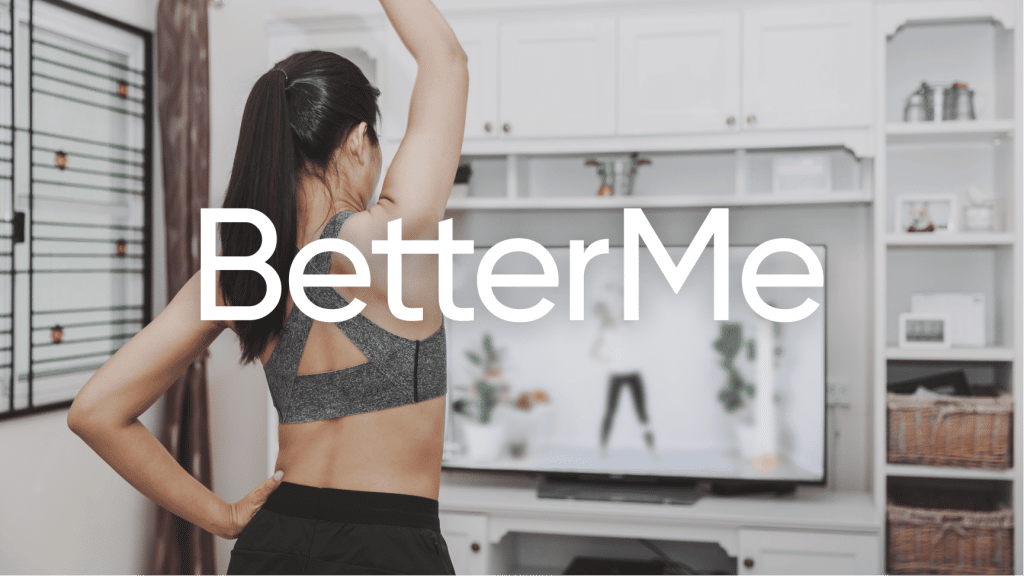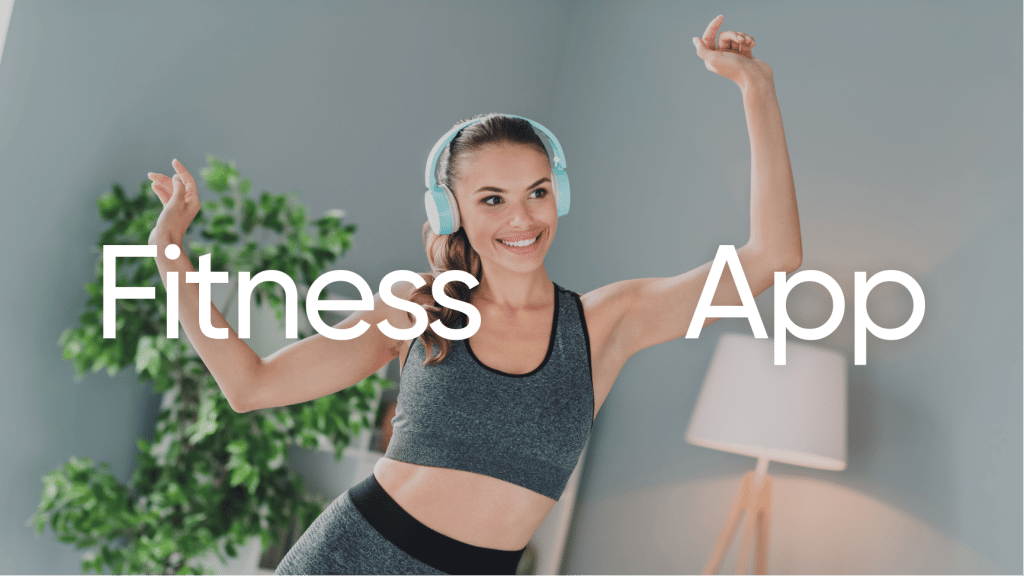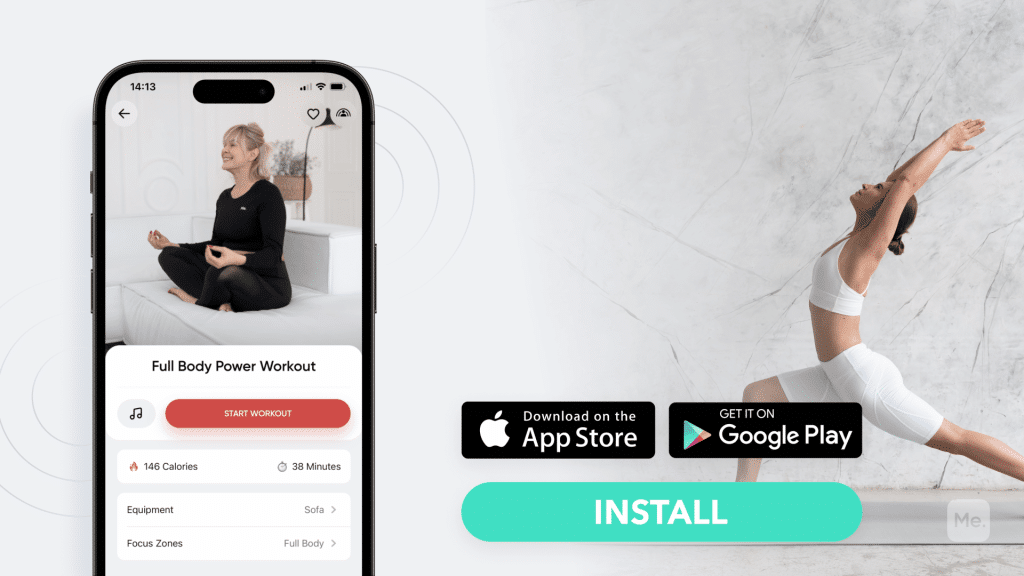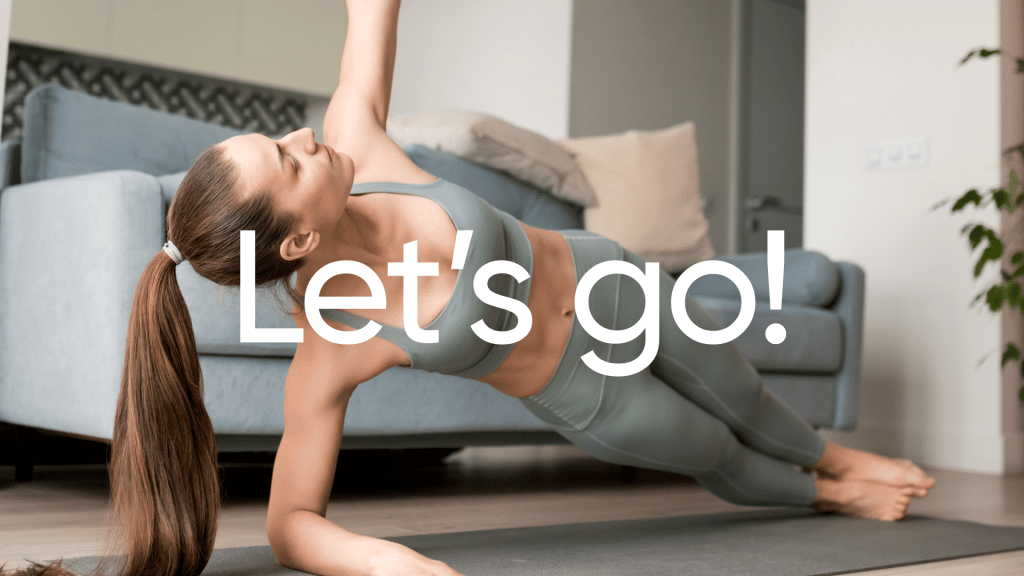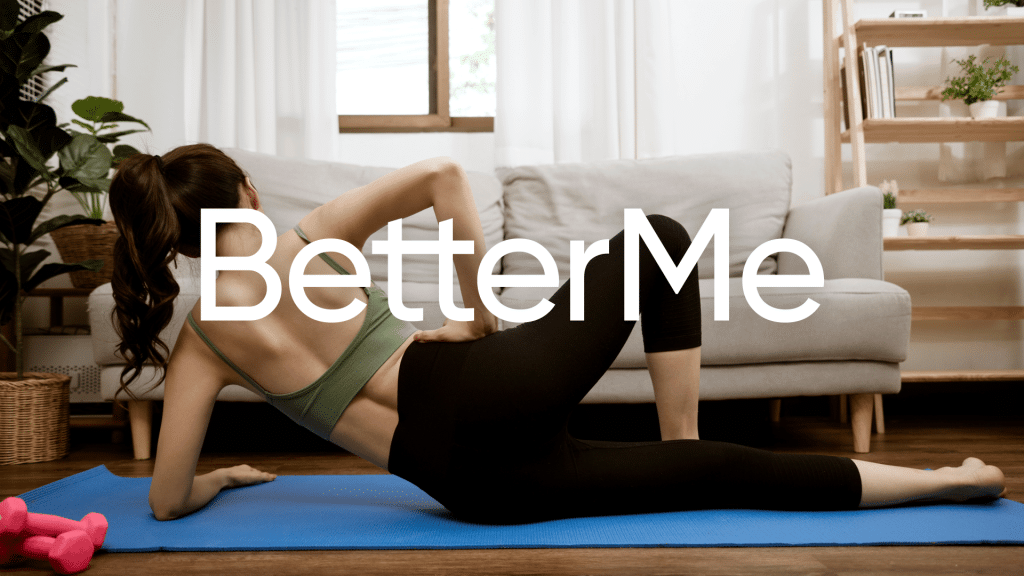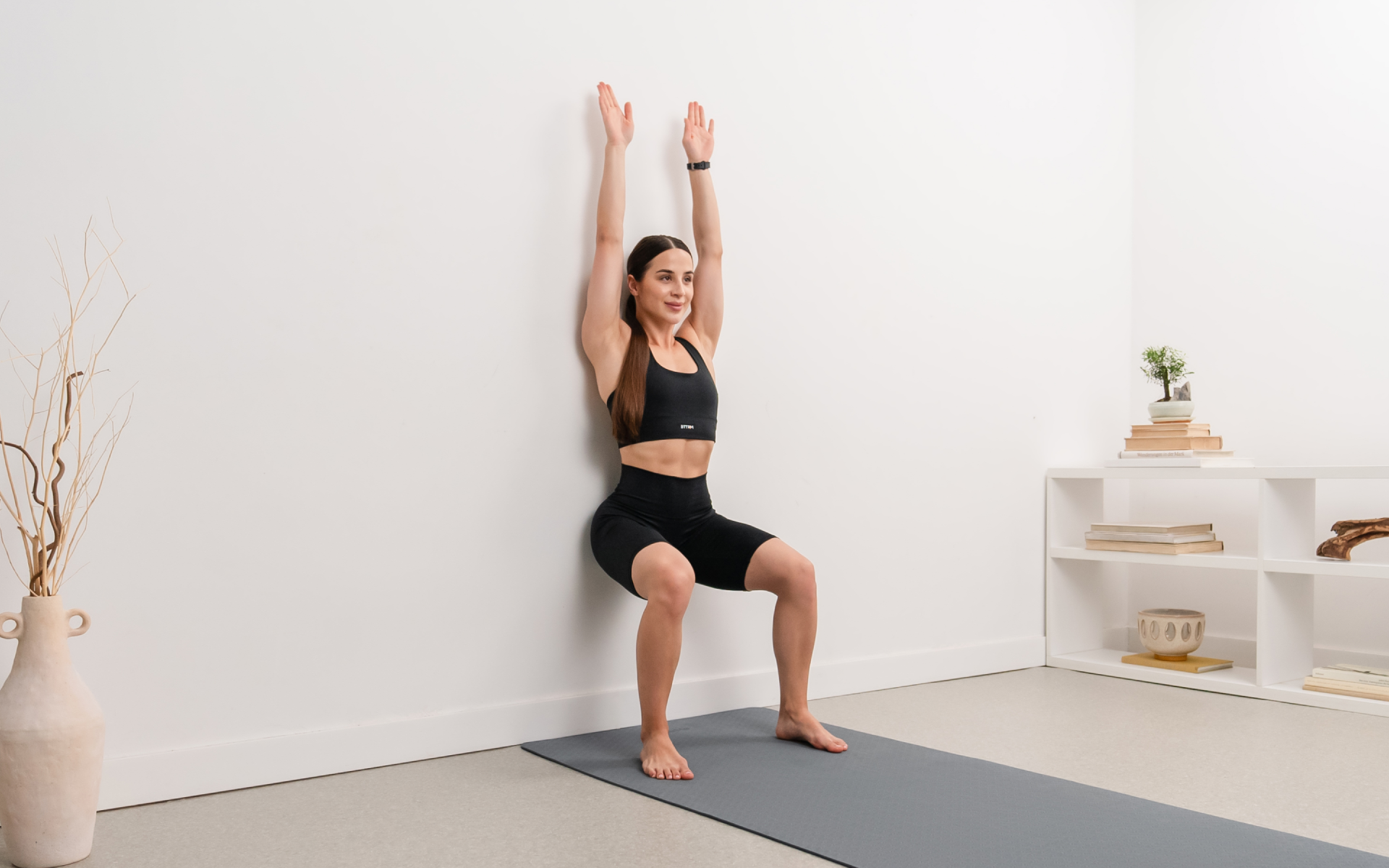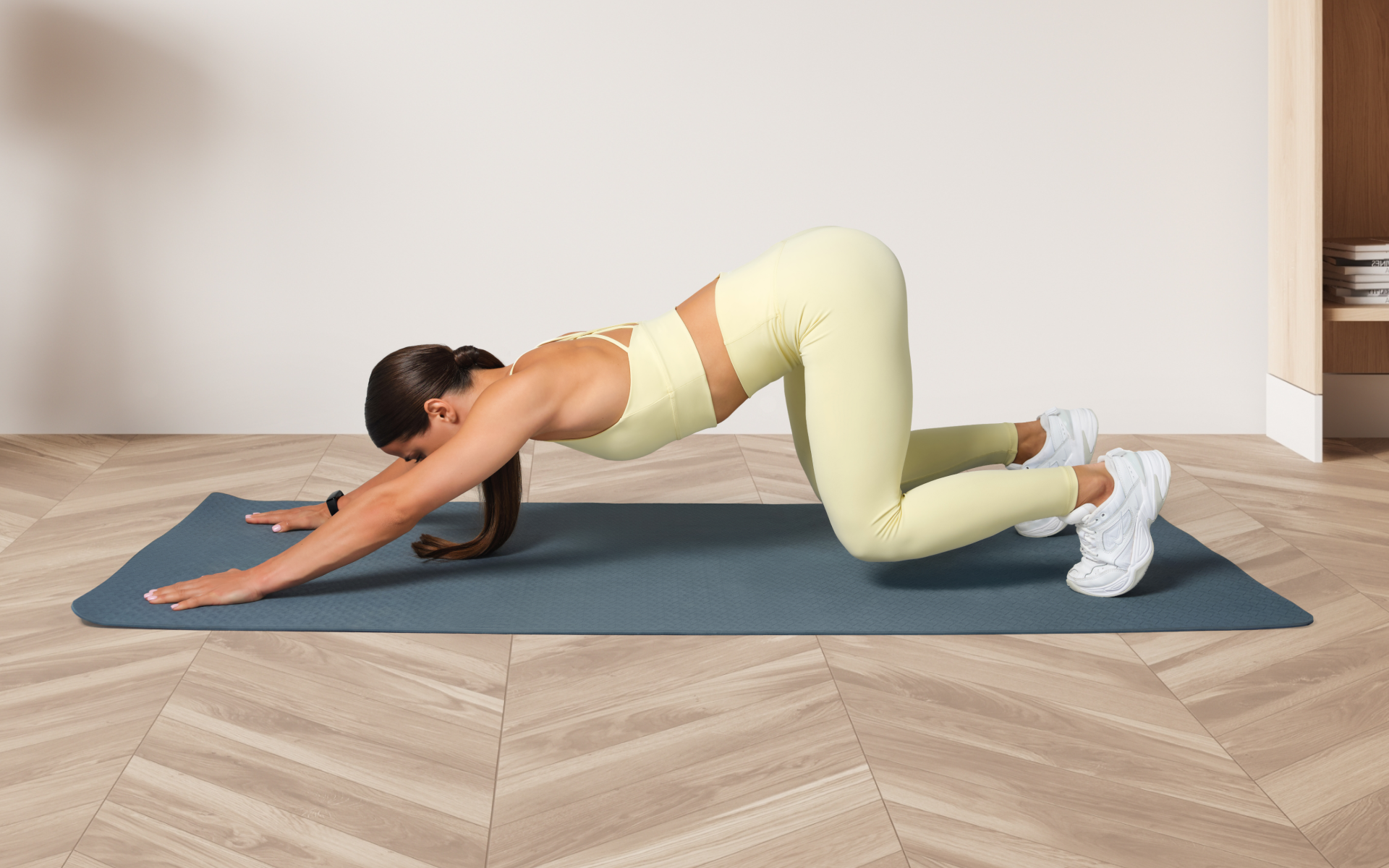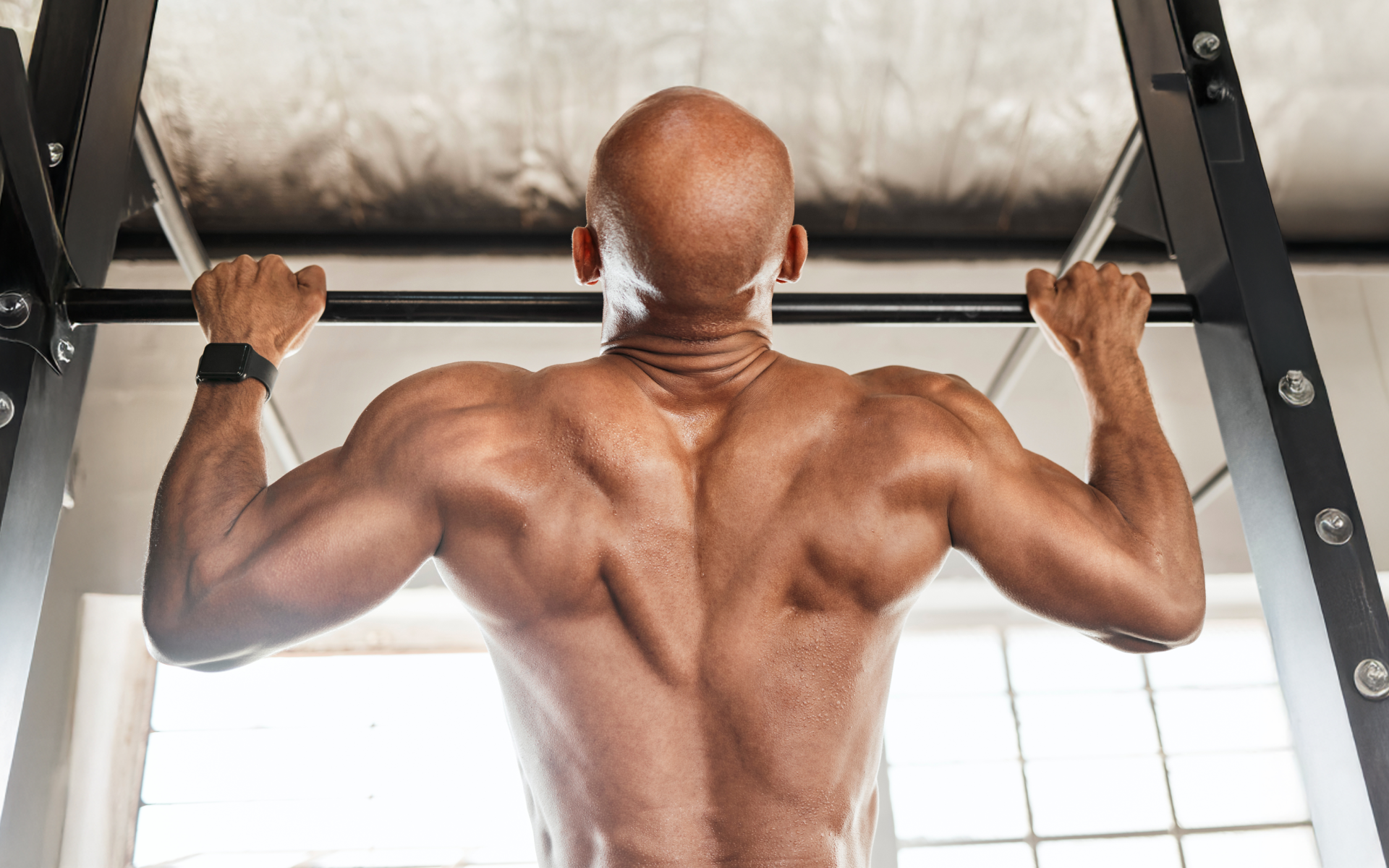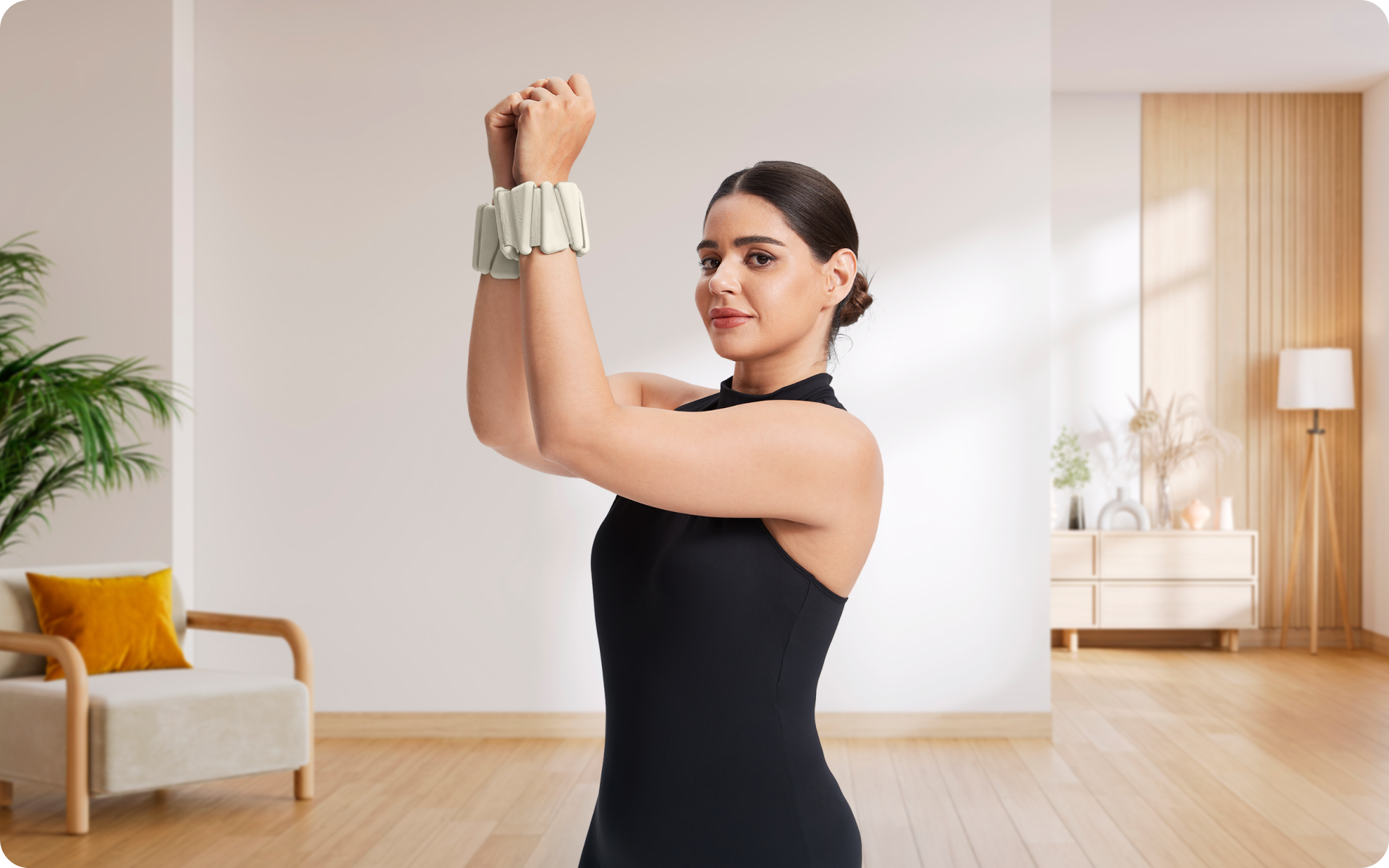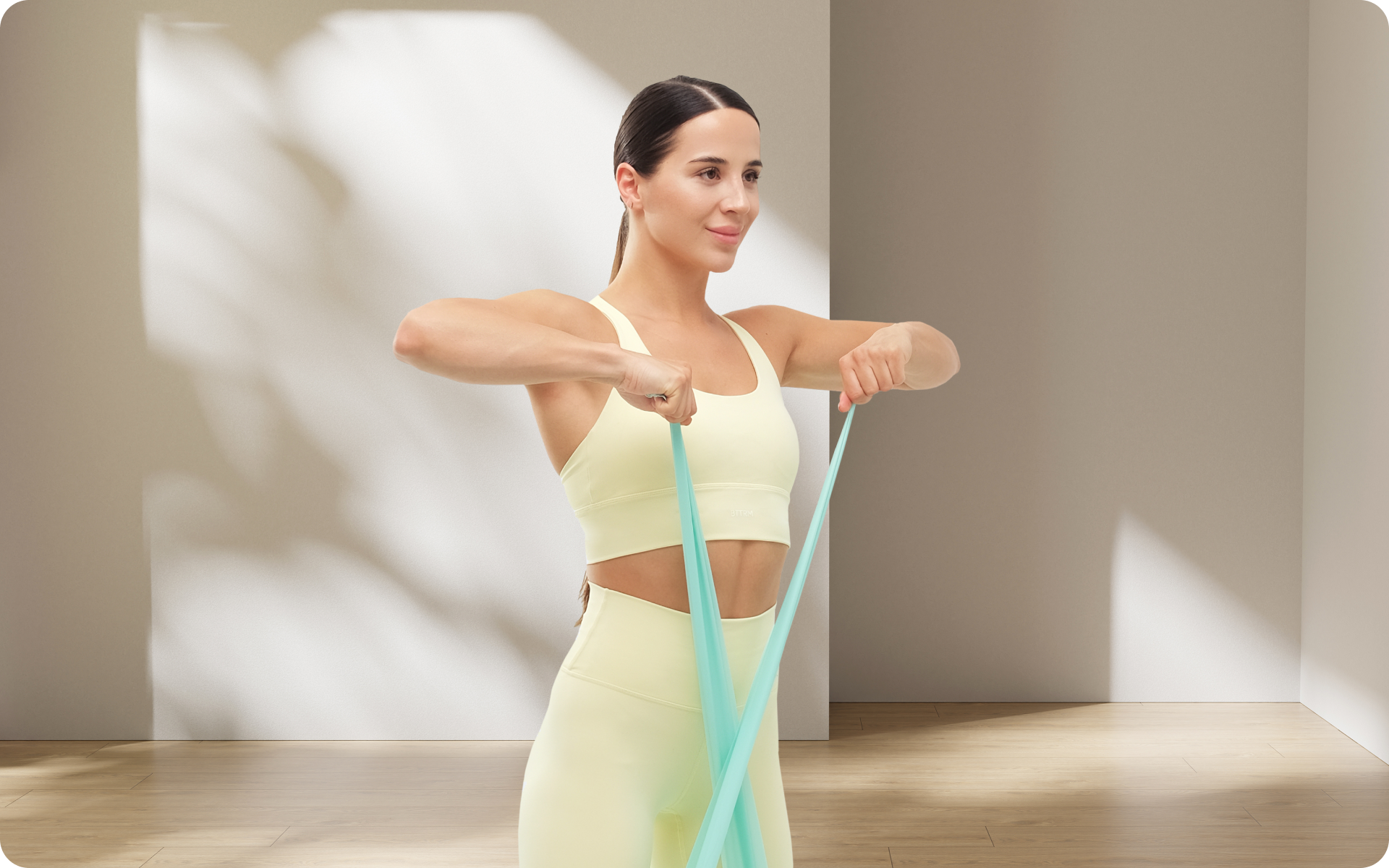Who doesn’t love big bulky shoulders? Having strong shoulders is likely the goal of every fitness freak, as they are not just a sign of athleticism but help define a V-shaped torso. From carrying weights to pulling things, shoulders help you do possibly every chore out there. Working out your shoulders means helping yourself get better mobility, strength, and endurance. Not only that, but doing consistent shoulder workouts may alleviate shoulder pain (1). Sounds tempting? If you want to learn how to workout shoulders and get a well-defined upper body, read this comprehensive article. Whether you’re a beginner or an experienced fitness enthusiast, this guide offers something for everyone looking to enhance their shoulder workout.
Get your personalized
meal plan!
How To Workout Back Of Shoulders?
The back of the shoulders comprises the posterior or rear deltoids, which are responsible for performing various arm movements. These may include extending your arms behind your hips or pulling a cable. Many only focus on working out the anterior or the front deltoids by lifting barbells.
If you want the shoulders of a bodybuilder, you must work out and engage all your shoulder muscles. To get bulky shoulders, you must understand shoulder anatomy.
The shoulder comprises three main muscles, anterior, posterior, and lateral deltoids or the front, back, and side shoulder muscles. These are all responsible for performing various arm movements (2).
Do you suffer from chronic back pain? Perhaps, you spend hours sitting or have a weak posture. Nothing to worry about, as working out the posterior deltoids regularly relieves shoulder pain and improves flexibility. The back of the shoulders is often ignored in workouts. Engaging the posterior shoulder muscles is important as they help maintain a good posture.
To engage the back of your shoulders you must use dumbbells, as they exhibit a range of motion and are effective at engaging various muscles compared to barbells. Also, you must bend over and rotate at multiple angles to better engage your posterior muscles.
Below are some exercises you can do to work out the back of the shoulders.
Single Arm Bent Over Row
The single arm bent over row is the best shoulders and back workout as it engages your back, and biceps, posterior deltoids. It also helps improve posture, build arm strength, and enhance shoulder stability. You need a dumbbell and a flat platform like a bench to perform a single arm bent over a row.
- Stand near a bench and ensure your feet are shoulder-width apart.
- Bend over the bench by placing your left knee on the bench while keeping your right leg firm.
- Grab a dumbbell in your right hand and place your left hand on the bench.
- Engage your core and keep your body tight. Inhale and lower the dumbbell as far as you can extend it.
- Exhale and bring the dumbbell back up.
- Repeat this motion a few times and switch with the other arm. The ideal duration is 7-8 reps per set and 3 sets.
If you are a beginner, start with lighter weights to ensure you don’t injure your muscles.
Read More: Wear This Trendy One Shoulder Long Sleeve Top For Your Dance Workouts
Bent Over Lateral Raise
The next ideal shoulders and back workout is the Bent Over Lateral Raise where you put both arms to good use. This workout is perfect for engaging your posterior and anterior deltoids. To perform Bent Over Lateral Raise,
- Grab a pair of dumbbells and stand on the ground with your feet shoulder-width apart.
- Hinge forward while keeping your knees locked and core engaged.
- Hold the dumbbells in front of your core while extending your arms straight.
- Inhale and raise the dumbbells sidewise laterally and extend them as far as possible.
- Exhale and return the dumbbells to their original position.
- Repeat Bent Over Lateral Raise for 6-7 reps per 2 sets.
Dumbbell Incline Raise
The next exercise is the Dumbbell Incline Raise which is a bit tougher than the previous two exercises but also effective at building shoulder strength rapidly. They also top the list of the best workout for broad shoulders. To perform Dumbbell Incline Raise:
- Set the bench press at a 45-degree angle to be higher than normal.
- Lie on the press and grab dumbbells in each hand.
- Hold the dumbbells near the ground and begin by pulling them upward so that it looks like you are making a Y position.
- Raise the dumbbells upward as much as possible and return to the original position.
- Keep your body tight and your arms straight during the workout.
- Repeat Dumbbell Incline Raise for about 4-5 reps per 2 sets.
These impressive posterior deltoid workouts give you a great body posture and an attractive upper body frame. Dumbbells are the surefire way to build great rear shoulder muscles. Grab a dumbbell now and set on the journey of getting a good posture.
How To Workout Shoulders With Dumbbells?
As mentioned above, dumbbells are the best tools for building shoulders. Within a few weeks, you will get protruding shoulder muscles and the big upper body you have always dreamed about. The best aspect of dumbbells is that you can independently train each arm and maintain a balance.
Unlike barbells, you don’t need to repeat the singular motion repeatedly. Also, dumbbells offer a range of motion and flexibility, reducing the risk of shoulder injuries. If you want to workout for wider shoulders, grab a pair of dumbbells and do the following exercises.
Incline Press With Dumbbells
If you want to target your anterior or front deltoids, then the Incline Press with Dumbbells is ideal. Also, it helps build a strong chest. Studies show that the incline press is far more effective at building a strong upper chest than the flat bench press (3).
To perform Incline Press, follow the instructions below.
- Incline the bench press and raise it to a 45-degree angle so that the press is higher than the normal position.
- Grab a pair of dumbbells and lie on the bench press with your feet shoulder-width apart.
- Hold the dumbbells parallel to your shoulders and keep your body tight.
- Inhale and raise the dumbbells upwards to elongate them side by side.
- Exhale and bring back the dumbbells near your shoulders.
- Repeat Incline Press with Dumbbells for about 10 reps for 3 sets.
Reverse Dumbbell Fly
Reverse Dumbbell Fly is the best wide shoulders workout as it extends your arms to the top position and engages your back muscles too.
- Grab a pair of dumbbells and stand on the ground with your feet shoulder-width apart.
- Hinge forward and bend slightly while keeping your legs and feet locked firmly.
- Hold the side of the dumbbell by the side in front of your thighs.
- Raise the dumbbells laterally while extending your arms maximum.
- Return the dumbbells to the original position, accounting for one rep.
- Repeat Reverse Dumbbell Fly for about 4-5 reps for 4 sets.
Seated Dumbbell Press
The most common yet the best workout for wider shoulders, the Seated Dumbbell Press engages all three shoulder muscles and helps build boulder shoulders.
- Sit on a bench press or a chair.
- Grab dumbbells in each hand and hold them near your chest with palms in the upper hand direction.
- Place your feet shoulder-width apart firmly to the ground.
- Raise the dumbbells side by side and extend them above as much as possible.
- Bring the dumbbells back near your chest and repeat the motion several times.
- Doing Seated Dumbbell Press for about 11-12 reps per 3 sets is ideal.
When it comes to weight loss, progress is made by inches, not miles, so it’s much harder to track and a lot easier to give up. BetterMe app is your personal trainer, nutritionist and support system all in one. Start using our app to stay on track and hold yourself accountable!
How Often To Workout Shoulders?
The most important yet often overlooked question is, how often should you work out your shoulders?
Before grabbing a pair of dumbbells and hitting the gym, it is pertinent to understand the intensity and duration of shoulder workouts.
Many people start with heavy weights and keep lifting incessantly, damaging their shoulder muscles. You must understand that the shoulder muscles are delicate and need little practice before indulging in hard pumping sessions.
The duration of a shoulder workout also depends on age, fitness level, illnesses, and other factors. If you are a healthy individual, you must do shoulder exercises one to three times per week. Keep a gap between workouts to rest your muscles and help them recover from the weightlifting sessions.
Starting with fewer reps of light weights is advisable if you are a beginner. This will help your muscles train and get used to weightlifting. Then gradually increase your weights and continue for longer reps.
Now you must be thinking about when you will be able to see results. You should see impressive results within a few weeks if you work out two to three times per week for at least 25 minutes (4). This also depends on your fitness level, health condition, body fat, and diet.
It is also crucial to understand various rules around shoulder workouts. We have busted some of the shoulder workout myths below.
- Flaring your elbows: Many people may tell you to flare your elbows while doing dumbbell presses or raises. All of that is a myth. In fact, you may hurt your shoulder muscles and injure them in the process. Keeping your elbows and arms straight prevents injury and makes these workouts safe.
- Doing higher lateral raises: Lateral raises are the best workout for broad shoulders, but that doesn’t mean you raise them abnormally high. The point is to put tension on your anterior deltoids, and that goal is achieved when you raise your arms parallel to your shoulders. Raising them higher will hurt your muscles without reaping any benefits.
How To Workout Your Shoulders At Home?
Who says great shoulders are built in the gym? You can get bulkier shoulders at home with or without weights.
Keep scrolling if you want to know how to work out shoulders at home. Below, we have listed some of the amazing at-home wide shoulders workouts.
Forward Arm Circles
Arm circles are the most underrated form of shoulder and arms workout, yet they produce impressive results. The good thing about arm circles is that you can do them possibly anywhere. Whether commuting in a subway or camping by the forest lake, arm circles help you build good shoulders everywhere.
- Stand with your feet shoulder-width apart.
- Extend your arms laterally in a way your body forms a T.
- While holding the position, start rotating and twisting your hands forward.
- Repeat the motion for 30 to 60 seconds until you feel immense pressure.
- You can even make the motion in a reverse manner.
- Hold some weight, like cans or bottles, to increase difficulty.
Pike Pushup
If you are a fan of pushups, then the Pike Pushup is the ideal shoulders and arms workout for you.
- Get into a pushup position and lift your body high.
- Walk a bit forward in a way your body forms an inverted V.
- Begin by bending your body and bringing your chest to touch the ground.
- Return to the original position and repeat the exercise a few times.
- Pike Pushups can be done 8-9 reps for 4 sets.
Read More: The Complete Guide To Choosing A One-Shoulder Top For Your Dance Class
Handstand Walk
Do you love gymnastics? Perhaps, you may have done various stunts like the handstand in childhood. If you want to build shoulders, use the Handstand Wall Walk.
- Get into a handstand position near a wall.
- Place your hands firmly on the ground and reversely walk up the wall.
- Hold the position for about 30 seconds and return to the original position.
- You can gradually increase the duration to 60 seconds.
To increase the difficulty level, incorporate handstand pushups into your routine.
Plank With Shoulder Taps
No workout is complete without planks. While they account for a core workout, planks engage the deltoids and build mass. To perform Plank with Shoulder Taps,
- Get into a plank position with your feet shoulder-width apart.
- Extend your arms and hold your body rigidly on your hands.
- Tap your left shoulder with your right hand and vice versa while maintaining the plank position.
- Maintain the plank for about 30 seconds for beginners and increase the limit to 60 seconds.
How To Stretch Shoulders Before Workout?
When searching about how to stretch your shoulders, people often skip the part about stretching your shoulders before a workout, which is the most important. Warmups are essential for heating your muscles, boosting blood circulation, and improving mobility.
You must incorporate pre-shoulder workout stretches if you suffer from shoulder pain (5). Stretching your shoulders before a workout is important for several reasons.
- Injury prevention: Stretching your shoulders can help reduce the risk of injury during your workout. This is because it helps to warm up the muscles and improve their flexibility, which makes them less prone to strains, tears, and other injuries. Also, stretching your shoulders before a workout lowers stiffness (6).
- Improved range of motion: Stretching your shoulders can also help improve your range of motion, which can help you perform exercises more effectively. This is particularly important for exercises that involve shoulder movements, such as overhead presses or pull-ups.
- Reduced muscle soreness: Stretching your shoulders can help reduce muscle soreness after your workout. This is because it can help increase blood flow to the muscles and reduce lactic acid buildup, which can cause soreness and stiffness.
Stretching your shoulders before a workout is an important warmup routine. It can help prepare your muscles for the workout, reduce your injury risk, and improve your overall performance. First, you must do some shoulder warmup exercises like:
Shoulder Rolls
- Stand with your feet shoulder-width apart on the ground.
- Start by moving your shoulders in a forward circular motion while keeping your body and core rigid.
- Repeat the motion 8-10 times, then switch to backward motion.
Windmill
To perform Windmills:
- Stand with your feet shoulder-width apart on the ground.
- Keep your arms on your side and bring them above your head and back to the original position to form a circle.
- Repeat the motion 8-10 times.
After you have warmed up your shoulders, you must perform shoulder stretch exercises for greater mobility.
If you wish to free yourself from all the extra pounds that have been weighting you down for way too long, start using the BetterMe app and overhaul your entire life!
Banded Stretch
Resistance bands do more than just a workout. They are excellent at stretching your body and warming it amply. To begin:
- Stand with your feet shoulder-width apart.
- Hold both ends of the resistance band with your hands above your head.
- Start pulling and stretching the resistance bands in opposite directions to engage your muscles.
Towel Stretch
Besides resistance bands, towels also work wonders in stretching your muscles.
- Stand with your feet shoulder-width apart.
- Hold both ends of the towel behind your back by pulling your right arm behind your head and your left hand behind your back.
- Begin by pulling the towel in opposite directions.
- Do the stretch for a while till you feel warmth in your muscles.
After you have performed these stretches, your body is ready for a full-fledged shoulder workout routine. Remember to always warm up your muscles and rev your body before beginning any workout to prevent injuries.
The Bottom Line
By now, you must have learned everything there is to know about how to workout shoulders. Always start slow with light reps and gradually increase the reps as your muscles get used to the stress. Be patient in your workouts because witnessing your progress may take a few weeks.
DISCLAIMER:
This article is intended for general informational purposes only and does not serve to address individual circumstances. It is not a substitute for professional advice or help and should not be relied on for making any kind of decision-making. Any action taken as a direct or indirect result of the information in this article is entirely at your own risk and is your sole responsibility.
BetterMe, its content staff, and its medical advisors accept no responsibility for inaccuracies, errors, misstatements, inconsistencies, or omissions and specifically disclaim any liability, loss or risk, personal, professional or otherwise, which may be incurred as a consequence, directly or indirectly, of the use and/or application of any content.
You should always seek the advice of your physician or other qualified health provider with any questions you may have regarding a medical condition or your specific situation. Never disregard professional medical advice or delay seeking it because of BetterMe content. If you suspect or think you may have a medical emergency, call your doctor.
SOURCES:
- NEUROMUSCULAR ADAPTIONS FOLLOWING A DAILY STRENGTHENING EXERCISE IN INDIVIDUALS WITH ROTATOR CUFF RELATED SHOULDER PAIN: A PILOT CASE-CONTROL STUDY (2019, ncbi.gov)
- Anatomy, Shoulder and Upper Limb, Deltoid Muscle (2022, ncbi.nlm)
- Effects of Horizontal and Incline Bench Press on Neuromuscular Adaptations in Untrained Young Men (2020, pubmed.gov)
- What You Should Know About Building Muscle Mass and Tone (2020, healthline.com)
- Shoulder Pain (2021, webmd.com)
- Best Stretches for Arthritis Morning Stiffness (2022, webmd.com)

